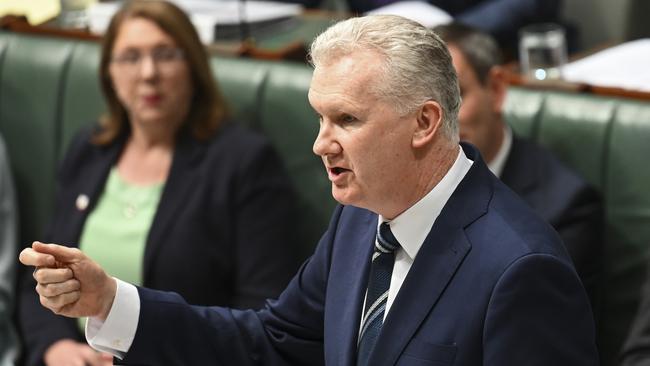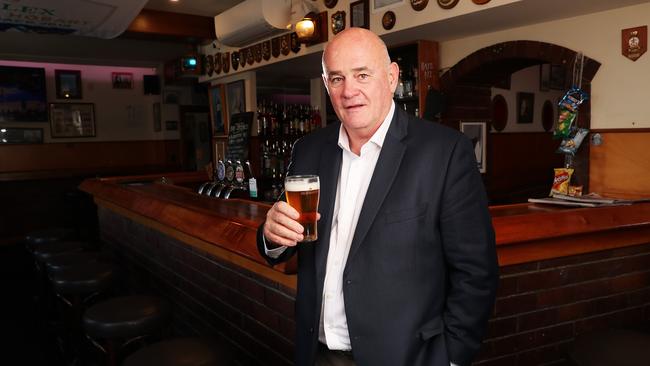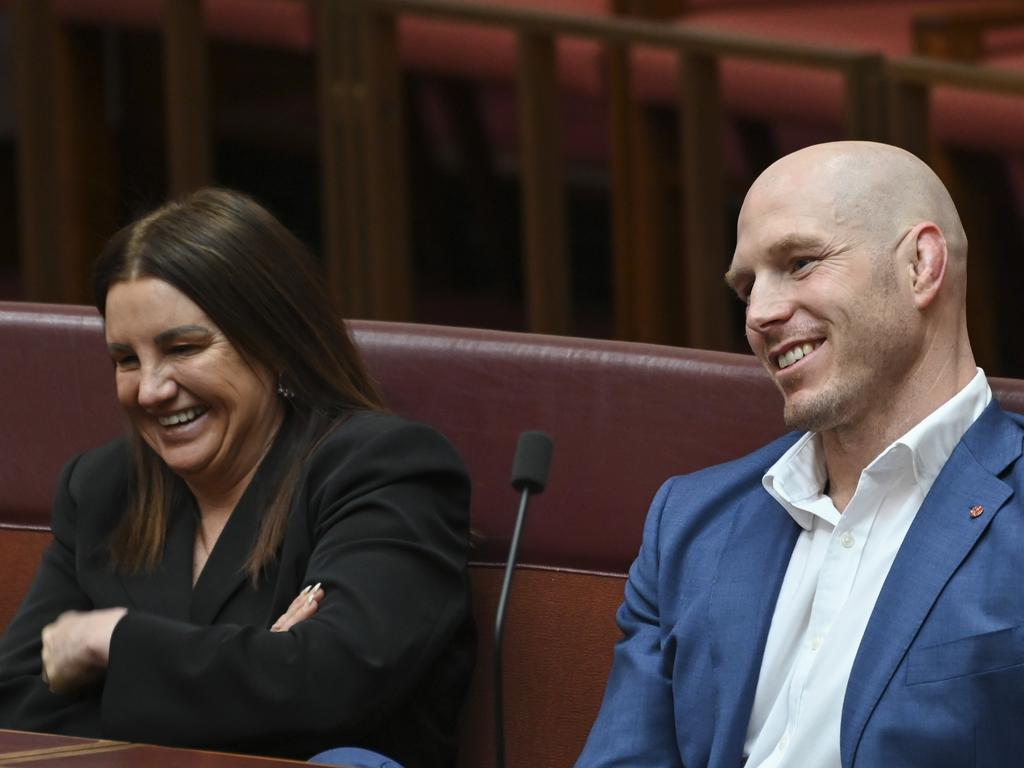Business blues over industrial relations shake-up bill
The IR deal struck between Tony Burke and AHA fails to protect employers from penalties and complexities around hiring casuals, according to legal advice.

The industrial relations deal struck between Tony Burke and the Australian Hotels Association fails to protect employers from penalties and complexities, making it harder for bosses to employ casuals, according to new legal advice endorsed by an alliance of business groups.
Small and big business leaders, backed by industry groups who oppose the government’s union-backed IR omnibus bill, have attacked the compromise agreement announced last week by the pubs and hotels lobby.
Restaurant and Catering Australia, who work closely with the AHA and represent 57,000 restaurants, cafes and catering businesses, has joined forces with the Council of Small Business Organisations Australia and Minerals Council of Australia (MCA) to reject the AHA-government deal.
Legal advice released by the MCA, prepared by Corrs Chambers Westgarth, says even with the proposed amendments it would still be unlawful to employ a casual worker who works regular hours.
The AHA claims the changes would remove proposed fines of up to $93,000 relating to misrepresentation of casual employment and allow people who work systemic regular hours to continue those arrangements.
The rift between business groups has exploded in the past week, with industry leaders claiming the AHA agreed to “empty promises, faux compromises and more red tape”.
The legal advice suggests that employers who breach the new definition of a casual would still be exposed to existing penalties and vulnerable to fines and legal action by the Fair Work Ombudsman, employees and unions.
It says a proposed legislative note promoted by the AHA, described as a “footnote” by business groups, would have no legal power and be overridden by the contents of the government’s bill, which crossbenchers Jacqui Lambie and David Pocock are seeking to split.
Restaurant and Catering Association chief executive Suresh Manickam said the AHA concessions would make no difference.

“We are still opposed to many sections of the Closing the Loopholes bill. One of the things that continues to concern us is the treatment of casuals and how that might play out. Our sector … has casuals legitimately operating for a number of reasons. Those reasons suit not only the employees but also the employers as well,” Mr Manickam said.
Mr Manickam said the prospect of young Australians being told they will no longer receive loading and their pay would decrease because they are now permanent would make it tougher for restaurants and cafes, particularly those exposed to seasonal economies.
“We don’t see that there are any concessions available. It is … nothing more than a footnote. We continue to have great concerns about the potential treatment of casuals into permanent employees,” he said.
He warned the proposed IR laws, which will be voted on in the Senate early next year, higher rates and ongoing supply chain pressures “feed into the cost of doing business”.
AHA chief executive Stephen Ferguson, who along with ACTU secretary Sally McManus and other industry chiefs travelled to Rockhampton last week for a Senate inquiry hearing into the legislation, urged critics to stop “throwing rocks”.
“All employer groups agree on the issues and complexities within the bill. Us included. However, all the other groups seem to have adopted a ‘we will not negotiate mentality’ and that the whole bill should be thrown out,” Mr Ferguson said.
“There were things in the bill that we thought would be an improvement if we could get them for our workers and mitigate risk for our members.”
Mr Ferguson said the two concessions – removing penalties for employers who mistakenly employ someone as a casual and clarifying in a yet-to-be-finalised legislative note that people who want to work systemic hours can – were big wins.
“I can understand that they think the note is not sufficient. My answer to that is … it would be great if they wanted to walk in the door with us and have those conversations with government.”
Mr Ferguson, who concedes other business groups are dealing with issues around labour hire, said “all they’re doing at the moment is sitting there and shouting at the sky instead of being constructive”.
MCA CEO Tania Constable said “businesses and workers deserve better than empty promises and faux compromise”.
“These supposed amendments fail to address the fact that the complex and restrictive definition of a ‘casual employee’ in the bill will not change. It will still be unlawful to employ a casual worker who works regular hours, according to leading industrial relations legal experts,” she said.
“The changes are designed to give the appearance of compromise, but in reality, offer no actual benefit. It is a total mirage.”
COSBOA chief executive Luke Achterstraat said “media reports of changes to the bill do not address the underlying issue of added complexity, red tape and indeed raise questions about the clarity of the bill in the first place”.








To join the conversation, please log in. Don't have an account? Register
Join the conversation, you are commenting as Logout